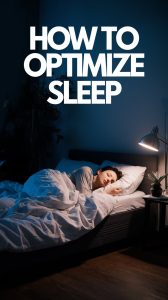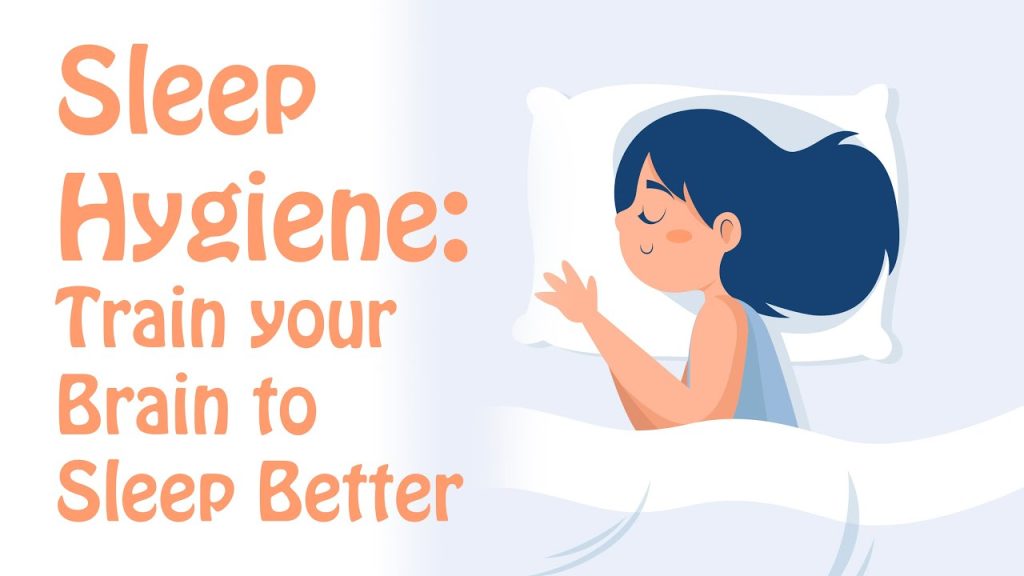Getting a good night’s sleep is essential for your overall health, well-being, and beauty. Quality sleep allows your body to repair itself, boosts your immune system, and improves cognitive function. Unfortunately, modern lifestyles can disrupt sleep patterns, making it harder to get the rest you need. Here’s a guide on how to optimize your sleep with practical tips and habits for deeper, more restorative rest.

1. Establish a Consistent Sleep Schedule
Your body operates on a circadian rhythm, which is its internal clock. Going to bed and waking up at the same time every day helps regulate this rhythm, making it easier to fall asleep and wake up naturally. Aim to get 7-9 hours of sleep each night, and stick to your schedule—even on weekends.
Tip:
- Set a nightly reminder an hour before bedtime to wind down.
- Gradually adjust your sleep schedule by 15-30 minutes each day if needed.
2. Create a Relaxing Bedtime Routine
A relaxing pre-sleep routine can signal to your body that it’s time to sleep. Activities like reading, listening to calming music, or practicing deep breathing exercises can help reduce stress and prepare your mind for rest. Avoid stimulating activities like checking emails or watching action-packed shows right before bed.
Tip:
- Incorporate calming activities like meditation or gentle stretching to relax both mind and body.
- Try aromatherapy with lavender or chamomile to enhance relaxation.
3. Optimize Your Sleep Environment
Your bedroom should be a sanctuary for sleep. Make it as comfortable and conducive to rest as possible by controlling light, noise, and temperature. Darkness helps your body produce melatonin, a hormone that promotes sleep, while cool temperatures help maintain comfort throughout the night.
Tip:
- Use blackout curtains or an eye mask to block out light.
- Keep your bedroom temperature between 60-67°F (15-20°C) for optimal sleep.
4. Limit Exposure to Blue Light Before Bed
Blue light emitted by phones, tablets, and computers can interfere with your body’s production of melatonin, making it harder to fall asleep. Limiting screen time an hour before bed can significantly improve your sleep quality.
Tip:
- Turn on “night mode” on your devices to reduce blue light exposure.
- Set aside your devices at least 30-60 minutes before bedtime and focus on offline activities.
5. Watch What You Eat and Drink
What you consume during the day can affect your sleep. Avoid heavy meals, caffeine, and alcohol close to bedtime. While alcohol may make you feel sleepy initially, it can disrupt your sleep cycle later in the night.
Tip:
- Have a light snack, like a banana or a handful of almonds, if you’re hungry before bed.
- Avoid caffeine at least 6 hours before bedtime.
6. Exercise Regularly, But Not Too Late
Regular physical activity promotes better sleep by reducing stress and improving sleep quality. However, exercising too close to bedtime can be counterproductive as it raises your energy levels and body temperature, making it harder to fall asleep.
Tip:
- Try to finish vigorous exercise at least 3-4 hours before bedtime.
- Incorporate light activities like yoga or stretching as part of your evening routine.
7. Manage Stress and Anxiety
Stress and anxiety are common sleep disruptors. Incorporating relaxation techniques into your daily routine can help ease your mind and promote restful sleep. Deep breathing exercises, progressive muscle relaxation, and journaling can be effective ways to manage stress before bed.
Tip:
- Keep a notepad by your bed to jot down any lingering thoughts or worries before sleep.
- Practice mindfulness or guided meditation to calm your mind.
Conclusion
Optimizing your sleep is about creating healthy habits and making simple adjustments to your routine and environment. By sticking to a consistent sleep schedule, crafting a relaxing bedtime routine, and managing lifestyle factors like diet and screen time, you can enhance your sleep quality. Prioritize sleep as part of your overall wellness, and your body and mind will thank you for it!

This article provides actionable tips for improving sleep quality, making it perfect for a Pinterest audience interested in health, wellness, and self-care!



